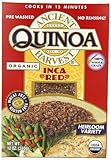Humane Treatment Methods Are Included in Jewish Nutritional Law
Some non-kosher customers realize that humane treatment methods are included in Jewish nutritional law. Creatures should be handled carefully, given a particular diet and slaughtered having a quick cut towards the carotid artery. (Additionally, rabbis inspect carcasses for defects like damaged bones or infection. Laundering in salt and cold water help remove all traces of bloodstream.) Kosher doesn’t guarantee humane though and like other things, it is dependent around the management and the standard from the operation and also the training from the personnel, to make sure that creatures and items are treated properly.
The OU began in 1898 by Rabbi Henry Pereira Mendes, also it serves today about 1,000 synagogues and congregations of different dimensions. The requirement for a national Jewish Orthodox rabbinical organization in early last century was recognized by a few groups. The Union of Orthodox Rabbis was probably the most effective rabbinical body in those days and lots of of their people saw great value in creating the first Union of Orthodox Jewish Congregations of the USA.
A few of the information in the following paragraphs develops from a fascinating new book, La Bible des Routines, compiled by Jenny p Jonquieres and released by Amerik Media. Her book describes over 80 diets and fat loss programs. Each weight loss program is given 5 menu plans, an in depth discussion of their pros and cons, and plenty more. La Bible des Routines is presently available only in French.
[Flickr:Image:Large]
You will find exceptions towards the handling rule, within this situation if this involves a meshuval wine. This kind of wines are heated throughout production, meaning it may be handled with a non-Jew but still be looked at kosher. Oftentimes when heating your wine you’re heightening the tastes and also the smells from the wine. If your wine continues to be heated, it’ll let them know around the bottle. Often a meshuval wine is going to be offered at festivities where Jews and non-Jews can be found.
Ancient Harvest Organic Quinoa, Inca Red, 12-Ounce Boxes (Pack of 12)

Cooks in 15 minutes. USDA Organic. Wheat free, gluten free. Heirloom variety. Quinoa contains more high quality protein than any other grain. The National Academy of Sciences calls it one of the best sources of protein in the vegetable kingdom. Quinoa stands alone as a complete protein grain. It provides all the essential amino acids in a balanced pattern, close to the ideal set by the United Nations Food and Agriculture Organization. Quinoa contains no gluten. This makes quinoa the perfect food for people who follow a wheat free/gluten free diet. Quinoa is light, tasty and easy to digest. This delicate grain is much less filling than most other grains and pasta, and has a delicious nutty flavor all its own. Quinoa is quick and easy to prepare. Perfect for today’s active lifestyle, quinoa can be served as a side dish; in soups; in salads; as a pilaf; even as a nutritious breakfast cereal. Country of origin: Bolivia and Peru.
- 12-ounce each
- Organic wheat free and gluten free
- USDA certified organic quinoa
- Can use quinoa in both hot and cold dishes
List Price: $ 100.00
Current Price: $ 64.15

Recent Comments